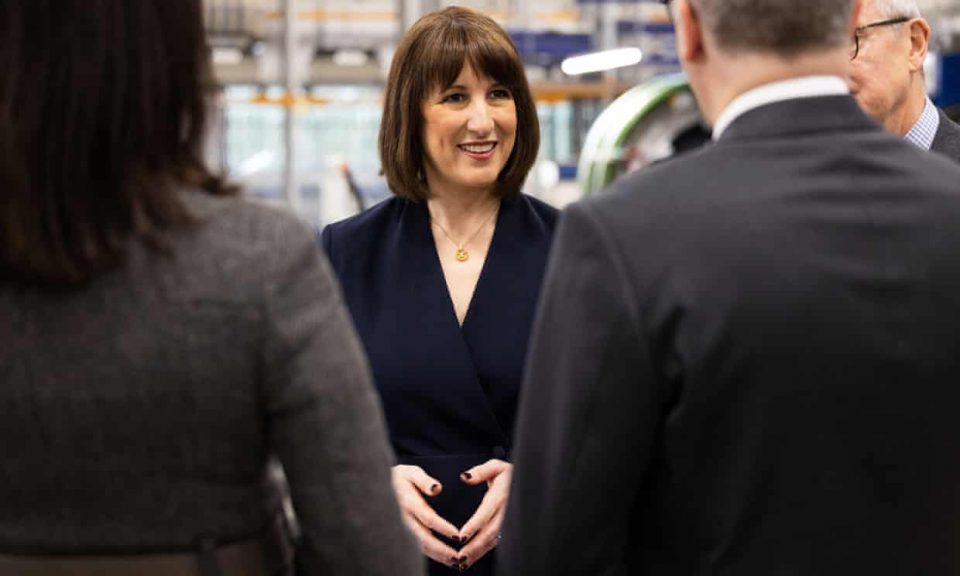Rachel Reeves ignited significant controversy by asserting that the proposed third runway at Heathrow was “set up for success.” This statement comes amid skepticism within Whitehall regarding the feasibility of harmonizing the project with the UK’s climate commitments.
In a pivotal speech focused on economic growth on Wednesday, the Chancellor placed the government’s support for Heathrow expansion front and center. “As our nation’s only hub airport, Heathrow occupies a unique position, and we can no longer postpone this decision,” she asserted, emphasizing that the rationale for the expansion is more compelling than ever.
After facing criticism for her earlier pessimistic outlook during the initial months of Labour’s tenure and amidst a government bond selloff that threatened her fiscal targets, Reeves maintained an upbeat perspective on the UK’s economic future. “Everywhere I travel across the country reinforces my confidence in Britain and my optimism for our future because we possess immense potential,” she stated.
However, the expansion plan—a move intended to demonstrate the government’s resolve in overcoming objections and supporting significant infrastructure projects after **two decades of indecision**—was met with immediate skepticism from some government officials. Reeves announced that a national policy statement for airports would be developed in the coming months to ensure that the third runway aligns with the UK’s legal, environmental, and climate commitments.
Some within the Labour Party contend that this means the airport’s expansion is unlikely, as it would severely undermine the government’s emissions objectives. They highlighted that approval would only be granted if the Department for Transport can adhere to its carbon budget, marking a minor victory for Ed Miliband, the Secretary of State for Energy, who has frequently noted the stringent nature of these budgets in the face of any airport expansion.
Miliband, known for his skepticism regarding Heathrow, has no plans to resign over the government’s endorsement of the project. He has expressed to allies the necessity of having a strong climate advocate remain within the cabinet. A confidant remarked, “Ed only seeks a proper process, and that is what we will ensure.”
A source from a different government department described Reeves’s address as little more than “theatre and vibes,” suggesting her intent was to convey that Britain is open for business. However, they warned that the reality of this initiative would be mired in prolonged policy debates for years.
London Mayor Sadiq Khan reiterated his opposition to the expansion, stating he would employ “whatever means necessary” to prevent it. “I remain unconvinced that adding hundreds of thousands of flights at Heathrow annually can occur without causing significant harm to our environment,” he remarked.
Ryanair CEO Michael O’Leary dismissed Reeves’s announcement as a “dead cat” tactic to divert attention from the stagnation in economic growth, which is anticipated to be confirmed by upcoming figures showing no improvement in the latter half of 2024.
Reeves mentioned that the government plans to “welcome proposals by the summer,” with aspirations for planning approval by the end of this parliamentary session in 2029. Heathrow has indicated that the runway could potentially be operational by the mid-2030s.
O’Leary criticized the announcement, stating, “Talking about a third runway or holding a press conference for something that may not materialize until 2040 creates an illusion of progress, despite knowing that this runway won’t be realized for 15 to 25 years.”
The Chancellor noted advancements in making air travel more environmentally friendly, particularly through sustainable fuels, but environmental advocates dismissed this narrative. Chaitanya Kumar, head of environmental policy at the New Economics Foundation, condemned the justification for airport expansion as relying on “false solutions,” emphasizing that projections indicate sustainable aviation fuels will have minimal impact on emissions until 2040, with any benefits outweighed by an increase in flights.
Rosie Downes, campaigns director at Friends of the Earth, criticized Reeves’s growth-focused approach as dangerously short-sighted, contributing to the ongoing climate crisis and leaving the UK among the most nature-depleted nations worldwide.
Moreover, in a potential setback for Heathrow’s plans, they will be evaluated under new government regulations that are about to be updated to incorporate stricter emissions targets. The previous airports national policy statement, released in 2018, operated under less rigorous standards.
Siân Berry, the Green MP for Brighton Pavilion and a long-standing opponent of aviation expansion, stated that the updated targets would likely lead to the unraveling of the expansion plans when confronted with climate realities and existing legal frameworks.
Among Labour MPs, the influential Labour Growth caucus expressed strong support for Reeves’s speech. Chris Curtis, the MP for Milton Keynes North and chair of the group, assured businesses that Labour members would endorse the Chancellor regarding planning and infrastructure decisions. “This is not just a government focused on growth; there’s also a movement among Labour backbenchers leading the charge,” he said.
Shadow Business Secretary Andrew Griffith remarked, “Re-announcing long-term investment plans is commendable, but it cannot replace immediate action, especially as businesses and workers are in dire need of assistance. If we keep this pace, new airport capacity will simply expedite the exit of the few remaining businesses from the country.”
Heathrow’s expansion emerged as a prominent component of a suite of pro-growth policies spotlighted by the Chancellor during her address to business leaders and cabinet members at a Siemens factory in Oxfordshire.
The government’s strategy to revive the stagnating economy includes a planning and infrastructure bill aimed at easing major projects from being stalled on environmental grounds and redefining regulators’ mandates to prioritize growth.
In a separate context, Bank of England Governor Andrew Bailey informed MPs on Wednesday that he supports the government’s initiative to make regulatory bodies more conducive to growth, though he emphasized this must not compromise financial stability. “Fundamentally, financial stability underpins growth, so there’s no fundamental trade-off,” he stated, highlighting the repercussions of financial stability loss witnessed during past crises.
*Additional reporting by Kalyeena Makortoff.*


